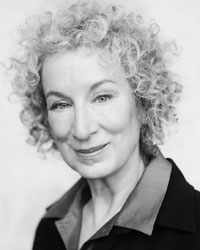 “Writing itself is always bad enough, but writing about writing is surely worse, in the futility department.” — Margaret Atwood
“Writing itself is always bad enough, but writing about writing is surely worse, in the futility department.” — Margaret Atwood
Why do some people write, when others do not? When a writer is hunched over his desk in an empty room, dreaming up stories that never happened and will never happen, why is he doing it? Why is writing her response to the world, to life? What is this peculiar compulsion to write about the world? Annie Dillard said that a shoe salesman is more useful than writers, because everyone needs shoes more. And it’s not as if writing is always so enjoyable, either. “There is nothing to writing,” said Ernest Hemingway. “All you do is sit down at a typewriter and bleed.”
The nine writers in this list have asked the same questions, and have attempted to answer them. From sitting down and facing a blank page, to reading novels and working out how they tackle plot, character and place, to how to strengthen the spirit during lonely days that make you question if the writing life is worth it (of course, you realise that it is), these nine people who choose to spend most of their days writing will show you the light. How did they become writers? How do they deal with writer’s block? You will see yourself in all of them. Writing is hard, and we all need someone to understand what we’re going through – as only another writer can (our friends and family members who do not write can only offer so much support.)
Writers need practical advice on how to write better, but they need something else, too, something that Anne Lamott calls “the writing frame of mind.” Writing is hard to separate from the writing life. Unless you’re one of those lucky prolific and productive people who can remain sitting for hours and write pages a day, the writing life is slow and can feel overwhelming. And you must go at it alone, often spending an entire day working alone with nothing to show for it. But don’t worry! The books in this list were written by writers who have gone through all of it, and whenever you need a burst of inspiration, all you need to do is dive in.
Letters to a Young Poet by Rainer Maria Rilke
What is astonishing to note about this slim volume comprising 10 letters, is that Rilke was only 28 years old when he wrote the first letter in 1903. This gives his advice a certain immediacy, as he was himself a young poet and was going through, or had very recently gone through, the same questions he was being asked. And that’s what you get when you read the letters – the voice of a young man, still learning, still striving. Rilke does not spend any time on how to write sentences or stanzas. Instead, his focus is on the inner life of the artist. Rilke advises us to go within, ask yourself whether you must write, again turn inward and write what you find there, and then be patient. A must-read for anyone who has had that inner desire to create.
“I know of no other advice than this: Go within and scale the depths of your being from which your very life springs forth.”
Still Writing: the Perils and Pleasures of a Creative Life by Dani Shapiro
Reading this book, you will feel like Dani Shapiro and you are friends talking over a pot of tea. In her memoir – Still Writing: the Perils and Pleasures of a Creative Life – Shapiro writes about sitting down to write. How can someone read (let alone write) an entire book about this simple act? Try it, and the simple act of sitting down to write can encompass the entire world. In chapter-snippets from Reading and Patience to Cigarette Break and Envy, Shapiro explores the formidable distance between the desire to write and the repeated act of putting words down on paper.
“We writers shape our own days. We sit at our desks in our pyjamas. We putter around empty houses, watering plants, making stews in the slow cooker, staring out the window, and we call it “working.” … and at the same time, often we don’t have anything to show for it. We have no guarantee that what we’re doing will amount to anything resembling art… I try to remember that to sit down and write is a gift. That if I do not seize this day, it will be lost.”
Reading Like a Writer by Francine Prose
To be a good writer, first you must learn how to be good reader. How else did our predecessors learn to write before writing workshops and MFAs? Francine Prose’s book is a testament to the power of close reading. She invites you to sit by her side and delve into books. She studies the masters – Dostoyevsky, Tolstoy, Austen, Flaubert, Dickens, Woolf – and ponders over how a particular word, sentence or detail works. This book will encourage you to return to your favourite books with a fresh and eager eye.
“Like most – maybe all – writers, I learned to write by writing and, by example, by reading books. Long before the idea of a writer’s conference was glimmer in anyone’s eyes, writes learned by reading the work of their predecessors… And who could have asked for better teachers: generous, uncritical, blessed with wisdom and genius, as endlessly forgiving as only the dead can be?… I can remember the novels and stories that seemed to be revelations: wells of beauty and pleasure that were also textbooks, private lessons in the art of fiction.”
A Moveable Feast by Ernest Hemingway
This memoir was published posthumously, three years after Hemingway’s death. It is a slice of Hemingway’s life as a writer in Paris at the height of the literary explosion in the city in the 1920s. Hemingway, together with F. Scott Fitzgerald, Picasso, Gertrude Stein and James Joyce, among other expats living in Paris at the time and trying to make a living through their art. They are now often referred to as The Lost Generation, a term coined by Stein referring to the young men who had served in the war. The book reads like a diary, and the writing style is similar to his novels, deceptively sparse and simple. A practical, matter of fact, depiction of what it was to live and write in Paris.
“Sometimes when I was starting a new story and I could not get it going… I would stand and look out over the roofs of Paris and think, ‘Do not worry. You have always written before and you will write now. All you have to do is write one true sentence. Write the truest sentence that you know.’ So finally I would write one true sentence, and then go on from there.”
Negotiating with the Dead by Margaret Atwood
The book began as a series of lectures at the University of Cambridge that have here been reworked into chapters. In Atwood’s words, it is about “the position the writer finds himself in; or herself.” It’s an enchanting investigation about what it means to be a writer in which Atwood explores the role of the writer and a writer’s relationship with readers. Why does a writer write, and for whom? This book is an erudite, honest, and humorous attempt to answer these questions. Example: Atwood compares the difference between writing and being a writer to the difference between digging a hole in a cemetery and being a grave-digger.
“Possibly, then, writing has to do with darkness, and a desire or perhaps a compulsion to enter it, and, with luck, to illuminate it, and to bring something back out to the light. This book is about that kind of darkness, and that kind of desire.”
How Fiction Works by James Wood
Eminent literary critic James Wood tackles ‘the novel’ and shows us the different pieces it is made of. How are fiction and reality related, if at all? How can characters be portrayed ‘realistically?’ What does it mean to ‘love’ a fictional character, to feel that you know her? How can writers portray the private interior life of a character in a novel? By citing specific examples from the works of Flaubert, Tolstoy, Austen, Woolf, Chekhov, Shakespeare, and others, Wood shows us how novelists have approached these questions and the effects their styles have on the reading experience.
“The true writer, that free servant of life, is one who must always be acting as if life were a category beyond anything the novel had yet grasped; as if life itself were always on the verge of becoming conventional.”
Bird By Bird: Some Instructions on the Writing Life by Anne Lamott
The title is from a story from her childhood. Her brother, ten years old at the time, was trying to write a report on birds. There he was on the kitchen table, the night before the report was due, surrounded by paper and pencils and books on birds, “immobilised by the hugeness of the task ahead.” His father sat down beside him and said, “Bird by bird, buddy. Just take it bird by bird.”
The book is an honest portrayal of what it means to write and is filled with practical advice on everything from plot to character, about keeping index cards around the house. At the same time as giving practical advice on writing, Anne Lamott’s book will lift your lonely, writer’s spirit.
“Becoming a writer is about becoming conscious. When you’re conscious and writing from a place of insight and simplicity and real caring about the truth, you have the ability to throw the lights on for your readers.”
On Writing by Eudora Welty
What makes a short story? Discusses elements of plot, narrative, atmosphere and place, and time. Looks at the stories of Virginia Woolf (“in her stories the senses mattered extremely), Hemingway (“half the action is revealed and half hidden… and it seems to be the halving that increases the story”), Chekhov (who “patiently builds up character”) and Lawrence (who “furiously breaks down character”), among others.
The most famous chapter comes at the end (“Must the Novelist Crusade?”), where she argues against the writer as a moral crusader. “The zeal to reform… has never done fiction much good.” Fiction’s purpose is to not to argue, but to show or disclose. Also the crusader’s voice is loud, it is the voice of the crowd.
“But writing fiction is an interior affair… fiction has, and must, keep, a private address. For life is lived in a private place; where it means anything is inside the mind and heart.”
The Writing Life by Annie Dillard
A slim book, but packed with insight and humour that will have you chuckling to yourself in the café (if you, like me, read in cafes) and sometimes brutal in its honest portrayal of the writing life. What does a writer have in common with a shoe salesman, you may have wondered? According to Dillard, the work of a shoe salesman is more useful – “everyone needs shoes more.”
“At its best, the sensation of writing is that of unmerited grace. It is handed to you, but only if you look for it. you search, you break your heart, your back, your brain, and then – and only then – it is handed to you.”
“One of the few things I know about writing is this: spend it all, shoot it, play it, lose it, all, right away, every time. Do not hoard what seems good for a later place in the book, or for another book; give it, give it all, give it now… something more will arise for later, something better.”

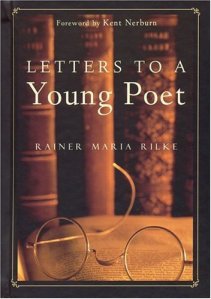
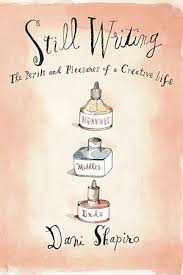
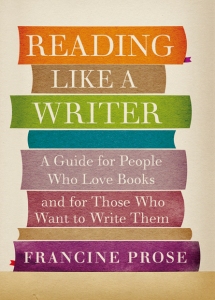
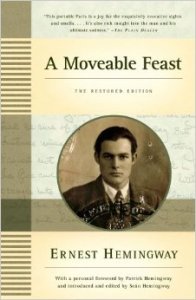
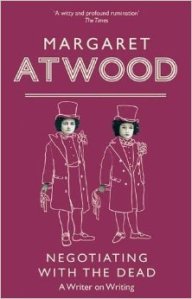
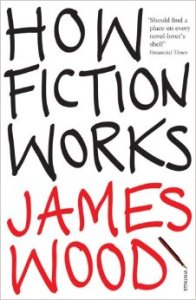
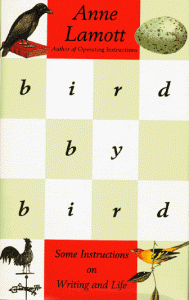
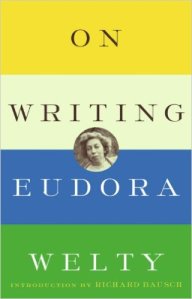

I read all of those books when I started writing! Good selection. I usually tell people to read David Mamet’s Three uses of the Knife. When I first started I writing plays so Mamet seemed like a good source, but the plot intricacies he talks about apply to all writing.
LikeLike
I haven’t read that one, but will check it out. I think novelists can learn a lot about plot and structure from playwrights and screen writers. Thanks for the suggestion!
LikeLiked by 1 person
No problem!!
LikeLike
Great post!
LikeLike
Thanks for reading!
LikeLiked by 1 person
Excellent! I’ve read A Moveable Feast and Bird by Bird. The others are going on my to-read list.
LikeLiked by 1 person
I have no doubt that you’ll love the rest too! Thanks for reading.
LikeLike
Nice list! Also worth a mention is Annie Dillard’s ‘Living by Fiction’ – more about reading than writing, but then I hear tell that reading and writing go together pretty well…
Also, it’s Annie Dillard. Anything she writes is worth it.
LikeLike
I hadn’t heard of that but it sounds amazing. Will check it out, thank you!
LikeLike